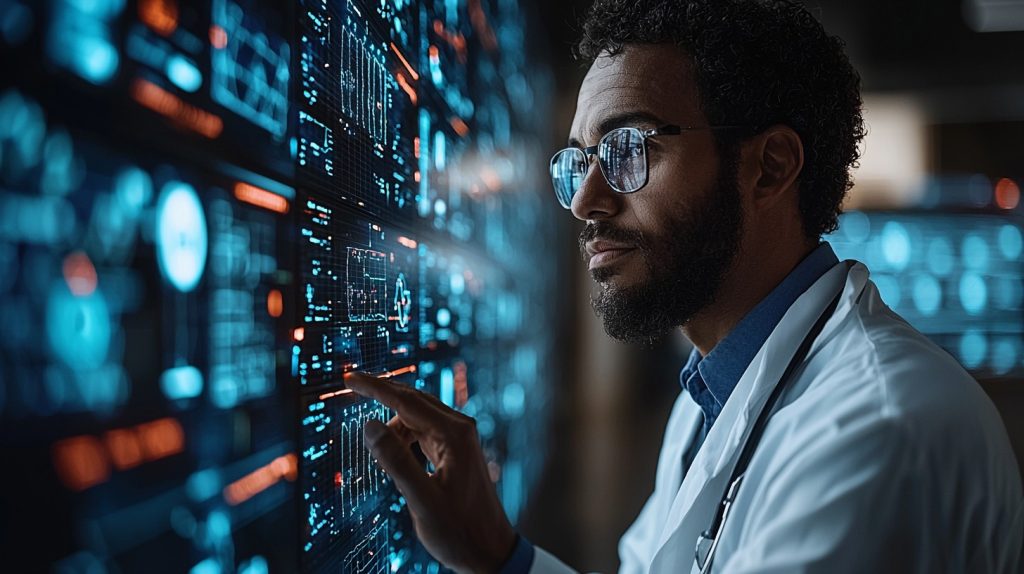The healthcare industry stands at the threshold of a new era in which data, algorithms, and computing power work for the benefit of patients and workers of medical facilities. Machine learning and artificial intelligence help doctors make more accurate diagnoses, predict the development of diseases, personalized treatment, and even manage hospital logistics.
Moreover, specialized software like an AI Therapist app helps regular internet users on a daily basis. For instance, people can receive remote medical care. Artificial intelligence systems expand the professional opportunities and prospects of medical professionals, as well as reduce work stress, and improve the speed of decision-making in enterprises.
Let us learn the advantages of AI and machine learning implementation in medical practice.
Technological revolution in health: the role of machine learning
Often, the speed of diagnosis, the accuracy of medical tests, and a personalized approach to patient treatment are essential for clinicians. For this reason, artificial intelligence and machine learning become important allies of physicians.
These technologies are capable of processing huge amounts of medical data, detecting hidden patterns in networks, and making decisions with high precision. Today, artificial intelligence helps doctors not only with diagnosis but also with disease prediction and treatment planning.
In short, machine learning is an area of artificial intelligence technologies that allows programs to be taught based on the main data. The algorithms analyze medical images, scan results, and patient electronic charts to make conclusions, identify pathologies, and create medical predictions.

In traditional computer programs, actions are registered strictly, but artificial intelligence systems learn in the process and improve their techniques. For instance, if a neural network is trained on several thousand X-ray images, it can recognize pneumonia or tumors even at an early stage. This greatly simplifies the work of physicians.
Healthcare sectors that use artificial intelligence systems
Because of machine learning and advanced computer technology, the analysis of large amounts of data takes place in seconds. Routine tasks are automated and doctors can devote more time to individual consultations with patients.
- Personalized medicine. Scientific and laboratory staff have begun to use technological advances in the AI industry to analyze genetic data, anamnesis, and patients’ reactions to drugs. This helps clinicians create personalized treatment plans for such complex issues as treating oncology and immune diseases.
- Drug development. Predicting molecular interactions and developing new drugs would be impossible without AI programs as well. This saves years of research staff and millions of dollars in the whole industry.
- AI allows you to create virtual assistants who consult with patients, monitor their symptoms, and remind them of medication. Patients with dementia and mental disorders find it particularly useful.
Conclusion
Machine learning and artificial intelligence are technological trends that have already become real tools that improve medical diagnosis and make treatment more accurate. Medical care becomes more available after its implementation. AI works hand in hand with people and helps them make informed decisions promptly.
The future of healthcare is bound to embrace digital innovation. With this in mind, the main goal of programmers should be to develop technologies and create conditions for their correct use in order to achieve ethics and efficiency.

